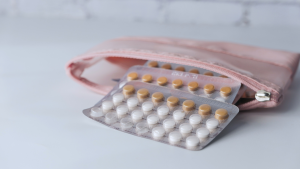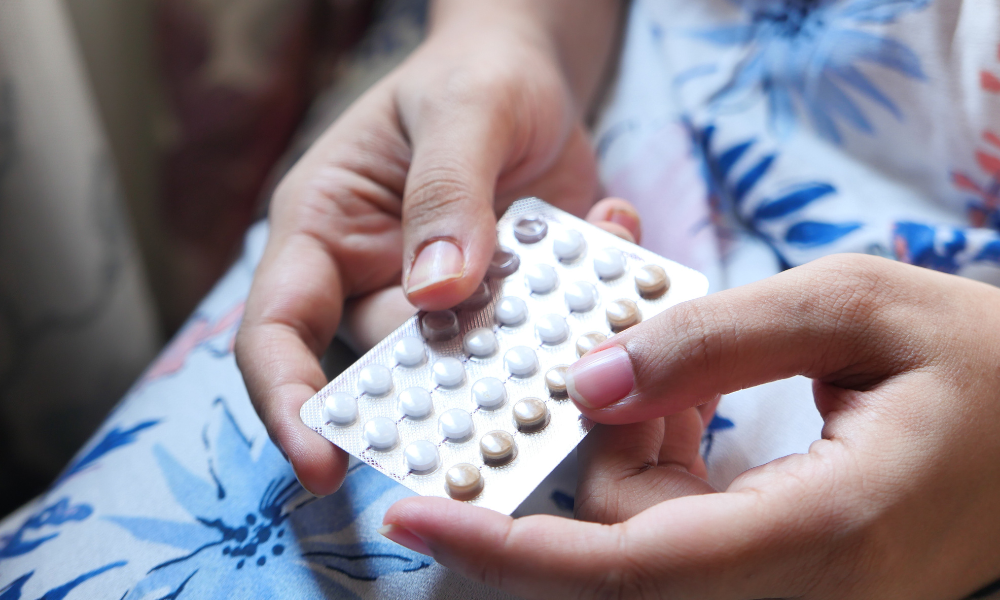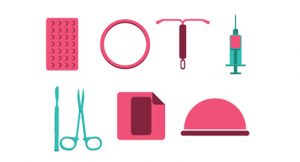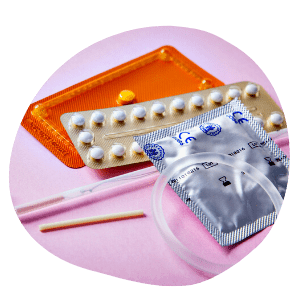
Birth Control Prescriptions Are Down in States with Abortion Bans
Women in states with restrictive abortion laws have few options today. And yet the prescriptions for birth control methods has fallen since the Dobbs decision.

May 18, 2023
An FDA advisory panel voted unanimously last week that Opill, a progestin-only birth control pill, should be available over the counter.
While over 100 countries make birth control pills available on pharmacy shelves, people in the U.S. still need a prescription to access this important pregnancy prevention method. If the FDA follows the panel’s advice, that could change soon.
Advocates have argued that requiring prescriptions puts unnecessary barriers between people and the birth control they need. The challenges to seeing a health care provider include cost, time off from work/school, childcare, and transportation. These issues often disproportionately affect adolescents, low-income women, and women of color. While advocates have been working on over-the-counter (OTC) access to contraception for almost two decades, the issue has become more highly charged recently as people across the country are losing access to abortion.
In order for a medication to be approved for OTC distribution, a manufacturer needs to prove to the FDA that its drug can be safely and effectively used without the supervision of a health care provider. This process can be time consuming and expensive for a manufacturer, and until last year no pharmaceutical company had been willing to take in on. Then in June 2022, HRA Pharma, working closely with advocates, asked the FDA to allow Opill to be sold without a prescription.
Opill is a POP—a progestin-only pill—that has been on the market since 1973. Most hormonal contraception (including most pills, and the patch, shot, and ring) contain both estrogen and progestin, but POPs, sometimes called the minipill, rely on progestin alone. Many of the side effects of hormonal birth control, including potentially dangerous side effects like blood clots, are caused by estrogen so the minipill is considered safer which makes it more likely to be approved by the FDA for use without a healthcare provider’s sign off.
The minipill may, however, be slightly less effective than those oral contraceptive pills that contain both estrogen and progestin. Like other hormonal methods, POPs thicken cervical mucus and thin the lining of the uterus to prevent sperm from getting anywhere near the egg. They can also prevent ovulation but less consistently than methods that also contain estrogen. Taking the minipill at the same time every day can maximize its effectiveness.
The primary question for the panel was whether people considering buying Opill could follow the instructions about who could take it and how to use it. Advocates who spoke to the committee argued that there were decades of evidence that patients knew how to take this pill, that a meeting with a health care provider was not required to get a prescription for birth control pills, and that a 20-minute annual meeting with a health care provider was unlikely to make much of difference in how well people followed instruction. Mostly, however, the speakers talked about how important it is to expand access to birth control pills.
The FDA raised some concerns about the data that HRA submitted and whether the studies had proven that users were able to follow the instructions. After weighing the evidence, the advisory panel felt confident that the benefits of Opill outweighed the risk. Maria Coyle, a pharmacist from Ohio State University who served as committee chair summed it up this way, “In the balance between benefit and risk, we’d have a hard time justifying not taking this action.” Another committee member pointed out that Opill was more effective than any of the contraceptive methods currently available over the counter (which at this point is mostly limited to condoms and spermicides).
The advisory panel’s decision is not binding, but the Biden Administration has pledged to support reproductive rights. Advocates celebrated the victory, and encouraged the FDA to act quickly and follow the committee’s recommendation to approve the drug for OTC use without any age restrictions. Kelly Blanchard, President of Ibis Reproductive Health, a group that worked closely with HRA on its application, said:
“The science is clear that an over-the-counter progestin-only pill is safe and effective and can advance public health and health equity, especially among communities who face the most barriers in our healthcare system. Following this historic vote, the FDA must follow the committee’s recommendation and remove the prescription requirement that prevents people from accessing the care they need.”
The FDA is expected to make a final decision soon.

Women in states with restrictive abortion laws have few options today. And yet the prescriptions for birth control methods has fallen since the Dobbs decision.

Anyone who is having penis-in-vagina sex runs the risk of getting pregnant every time they have sex. Even if it’s your first time. Even if you have your period. Even if it’s a full moon and Mercury is in retrograde.

A new study found that testicles of human men contained tiny little shards of plastics, adding to concerns about the impact of our environment on reproduction.

As rates of congenital syphilis skyrocket, a severe shortage of the only antibiotic approved to treat syphilis in pregnant women is delaying care for pregnant patients.

Following a decision from the U.S. Food and Drug Administration (FDA) released on January 3, 2023, pharmacies will be allowed to offer mifepristone—a drug used for medication abortion—for the first time.

Nearly all women use birth control at some point in their lives, and soon they’ll have one more option available. On May 22, the U.S. Food and Drug Administration (FDA) approved Phexxi, a non-hormonal contraceptive gel that works by keeping the pH levels in the vagina acidic, and thus inhospitable to sperm.
ASHA believes that all people have the right to the information and services that will help them to have optimum sexual health. We envision a time when stigma is no longer associated with sexual health and our nation is united in its belief that sexuality is a normal, healthy, and positive aspect of human life.
ABOUT
GET INVOLVED
ASHA WEBSITES
GET HELP
© 2025 American Sexual Health Association